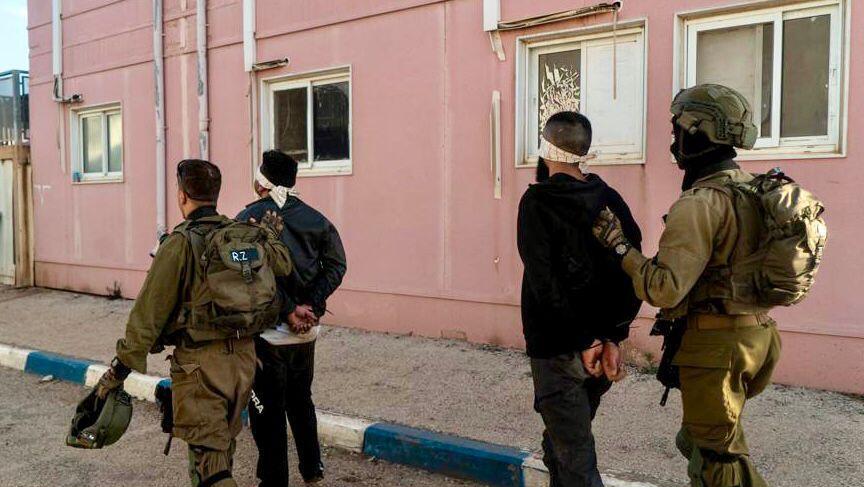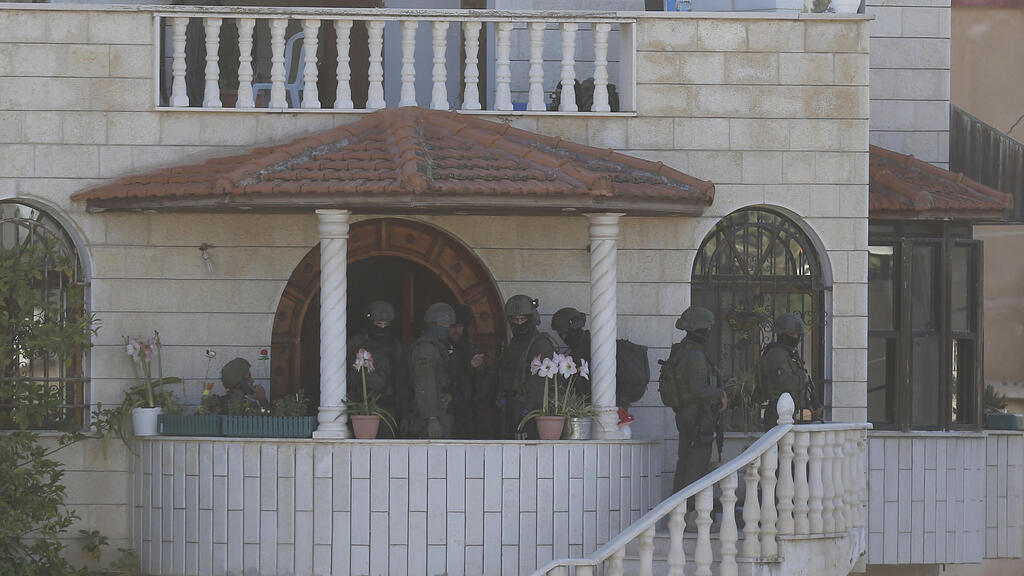Senior IDF officials said on Tuesday that the military was punishing the families of terrorists and their close and distant social circles hoping to deter further attacks.
"Collective punishment works," the official said.
2 View gallery


Troops arrest Palestinian suspected of involvement in terror attacks
(Photo: IDF Spokesperson's Unit )
The families of the terrorists who carried out the deadly attacks in Ariel and in Elad last week, were banned from entering Israel for work, medical treatment or religious worship.
In light of the deadly wave of attacks, the IDF decided to employ any means including such measures, the official explained adding that the severity of the measures depended on the relation to the terrorist.
"The IDF is does not use collective punishment lightly and is aware of the implications," the official said. "We are trying to direct such measures to the specific family or affiliation," he said.
"In the past, we have found collective punishment to be very effective," he said. "During the wave of stabbing in 2015, such measures were the subject of much discussion among Palestinians, as pressure was put on families and on the Palestinian leadership. But it is a temporary measure and can not be long-lasting," he said.
Preventing entry to Israel to work can be in effect for years but the military reviews the situation periodically in order not to cause unnecessary difficulties the official said.
He said the cooperation with the security agencies in the PA were ongoing even during times of tension but noted that in the northern part of the West Bank, around the city of Jenin, where some of the terrorists who committed recent attacks resided, those agencies have little power.


